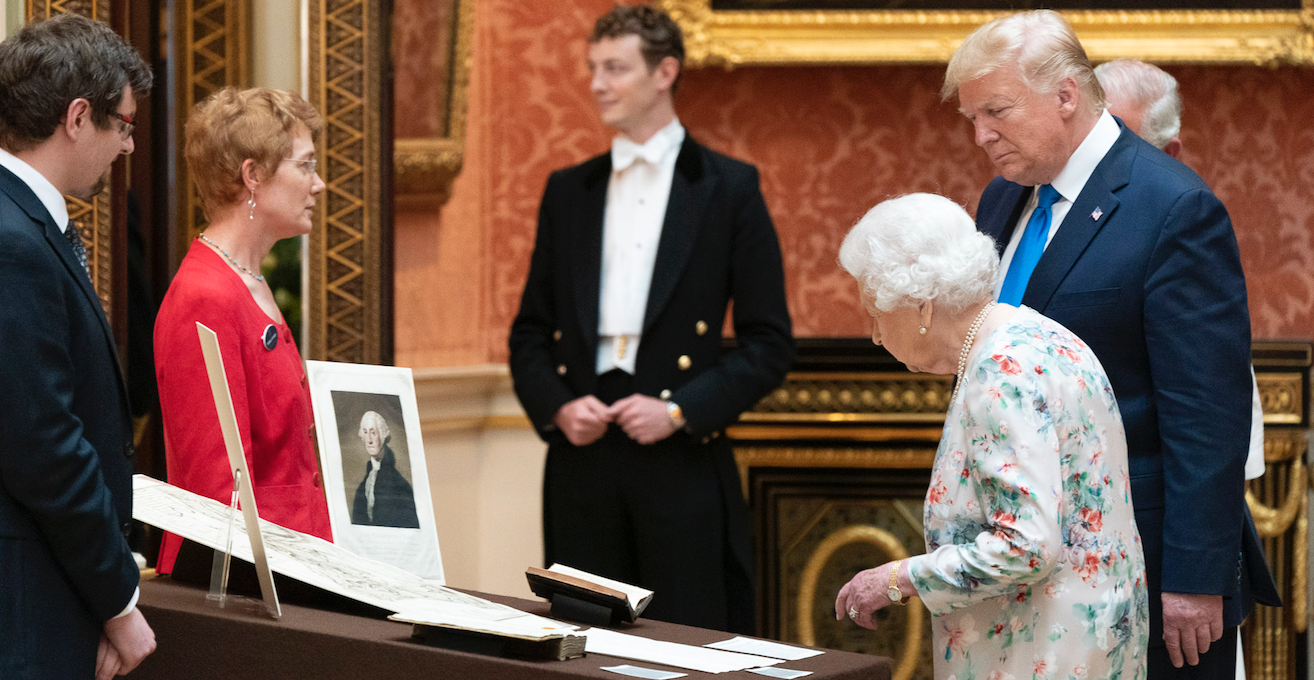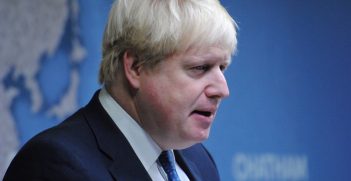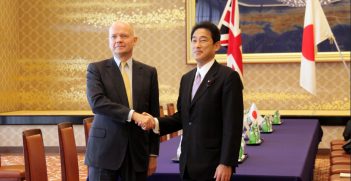When President Donald Trump is — Almost — Free of Discord

One thing is clear from his state visit to Britain: President Donald Trump is as unpredictable as he is wilful.
Despite this, the well-ventilated fear that during this visit Trump would tarnish US-UK relations, by repeating his previous partisan remarks to Murdoch newspapers, did not eventuate. In an interview during his visit, he said that Boris Johnson, the ultra pro-Brexit candidate seeking to succeed Theresa May, was a “good friend” and would be a very good prime minister.
As might be expected, his encounters with Queen Elizabeth II and other members of the royal family were flawless. Since coming to the throne in 1953, the Queen has been the host of 113 state visits. Many of her guests have been dictators and despots: Nicolae Ceaușescu, the Romanian dictator during the Cold War years — who was executed after the collapse of the Soviet Union — comes to mind, as does the unsavoury Ugandan, Idi Amin.
At Buckingham Palace and elsewhere, Trump was a courteous and model guest. At the glittering state banquet, he did not take issue with the Queen’s praise for the post-war assembly of institutions to ensure that “the horrors of conflict would never be repeated.” It is well known that the president holds most of these bodies in contempt. Nevertheless, in his well received speech, he took ownership of the Anglo-American relationship, describing the Queen as a “lovely person, and fantastic woman.”
Curiously — and if you ignore the Trafalgar Square demonstrations where the numbers fell far short of expectations — the only discordant note came as Air Force One was on its final approach to London Stansted Airport on Monday morning. Trump tweeted that Sadiq Khan, the mayor of London, was a “stone-cold loser who should focus on crime” in the capital. Trump was nothing if not provoked. Writing in The Observer on Sunday, the mayor compared Trump to the fascists of the 1930s and 40s, telling an American television station the president had become “a poster boy for the far right.”
And yet for all the decorum of the state visit and the sense of relief in the final days of Theresa May’s government that all had gone according to plan, with Trump even having amiable cups of tea with foreign secretary Jeremy Hunt and environment secretary Michael Gove — Boris Johnson’s main rival — the president has sharpened the deep divisions that have torn Britain apart. He has declared, repeatedly and unambiguously, that he was ready to agree “a phenomenal trade deal with the United Kingdom,” saying this could lead to a trebling of trade between the two countries.
Until now, the divide that has caused deep splits right across Britain has been a battle between those who want to leave the European Union as soon as possible and those who want to reject the 2016 referendum result and remain in the EU. Trump’s intervention has thrown a spanner in the works because it revives an issue that was very much in focus before Britain opted to join what was then called the European Community in 1973. At that time, I ran the foreign desk of the London Sunday Times, and the alternative to going into Europe was widely seen to be becoming the de facto 51st state of the US.
At his meetings with Conservative ministers and in statements about a trade deal, that is clearly not far from Trump’s mind. Of course, Britain would not literally become the 51st state: that is just a policymaker’s metaphor. Britain would still remain an independent monarchy, but in trade and politics it would move away from European influence and into the American sphere.
Both Trump and May put on record that Britain and America each have more than a million of their citizens working in the other’s country, and each country is the largest single investor in the other. Symbolically, Mrs May gave Trump a copy of a draft of the Atlantic Charter signed by Winston Churchill and Franklin Roosevelt in 1941 which inspired the creation of institutions like the United Nations, the General Agreement on Tariffs and Trade (GATT), and the European Communities. Interestingly, Mrs May was keen to stress the country’s commitment to NATO while lending strong public support to the US president’s demand that European nations must commit two percent or more of GDP to the NATO budget. In his speech, President Trump praised the UK government for its role in wiping out the ISIS caliphate.
The prospect of a trade deal between the UK and the US garnered quick support from Brexit ultras, most notably Nigel Farage, leader of the Brexit Party, Ian Duncan Smith, former Tory leader, and Jeremy Hunt, foreign secretary. All had private meetings with Trump at the home of the US ambassador. Trump also had a 20-minute phone conversation with Johnson.
But talk is cheap and reality is something else. If and when Britain unwinds its relationship with the EU, and given Chancellor Philip Hammond insists no agreement can be reached quickly and that another year extension beyond October is almost certainly needed, the negotiations will be tough.
Two of the most difficult issues would be food standards and health. The British are wedded to the to the strictly regulated health standards of the EU, and many Brexiteers are fiercely opposed to US practices such as washing chickens in chlorine and the over-packaging of foods. There is substantial opposition to Trump’s decision to pull out of the Paris Agreement on climate change, an issue raised by May in her meeting with the president.
Another issue worrying even pro-American ministers is Trump’s insistence, voiced strongly in answer to a question from The Times at the joint news conference, that any trade negotiations must include American access to contracts with the UK’s National Health Service (NHS). Many cabinet ministers, as well as the entire Opposition, regard the NHS as sacrosanct and state that they are unwilling to see it privatised, let alone fall into the hands of US multinational pharmaceutical companies. Be that as it may, the fact is that many doctors’ surgeries and clinics are now owned by investment groups, some of which are American-owned.
Within hours Trump had refined his response. When a television interviewer suggested the NHS could be a deal breaker in any trade deal, Trump replied: “I don’t see it being on the table. That’s something I would not consider part of trade. That’s not trade.” The British media branded this as a U-turn but that is a simplification. American pharmaceutical companies have made no secret of their dissatisfaction with the prices they receive from the NHS and have lobbied Trump to insist on demanding “fairer prices” in any trade deal.
One issue that was forecast to be a point of major disagreement with Britain was the role of Chinese state-owned Huawei in the UK’s 5G telecoms network appears to have gone away. Trump had threatened to withdraw intelligence cooperation should Britain decide to proceed with Huawei. But following this week’s meetings in London, it seemed that an agreement would be reached. The US president said he expected the “incredible intelligence relationship” with the UK would continue. Following the 75th anniversary commemoration of D-Day on 6 June, he referred to the relationship between the two countries as “the greatest alliance the world has ever known” and one that would continue for years to come.
The British government considers the Trump visit a great success: but for whom? General Charles de Gaulle, who opposed the UK’s entry into the Brussels club, predicted all those years ago that a Britain inside the European Community would drift slowly out into the Atlantic, drawing ever closer to the United States. Still, the Brexit divide still has months, perhaps years, to run. As the bishop of Colchester told his flock last Sunday, “the UK is an embattled and broken country.”
Colin Chapman is a writer, broadcaster and public speaker, who specialises in geopolitics, international economics, and global media issues. He is a former president of AIIA NSW and was appointed a fellow of the AIIA in 2017.
This article is published under a Creative Commons Licence and may be republished with attribution.




